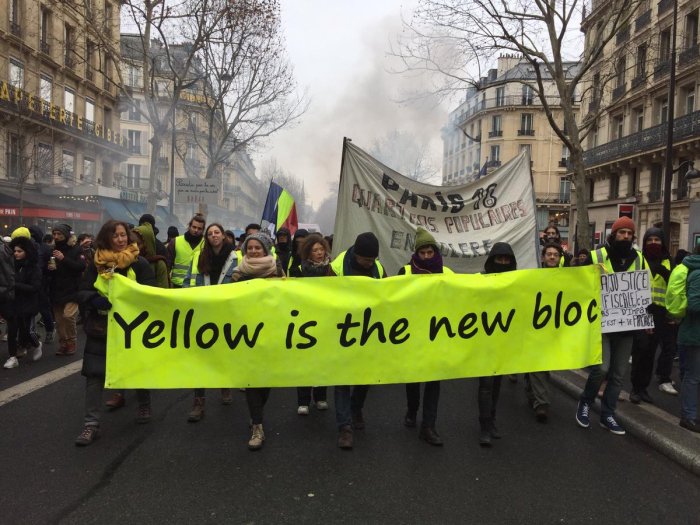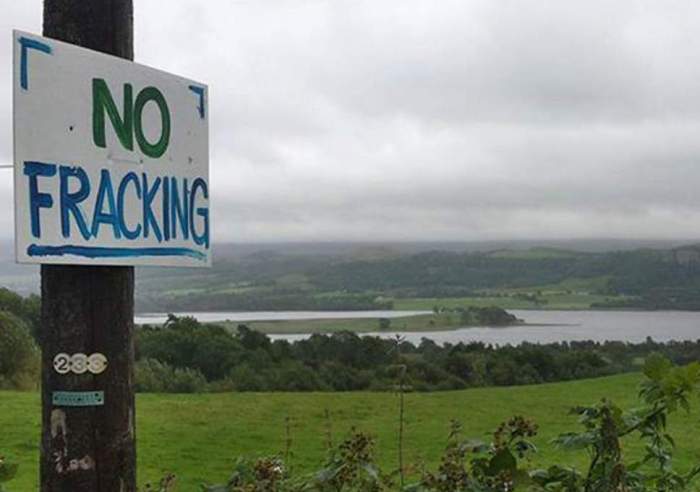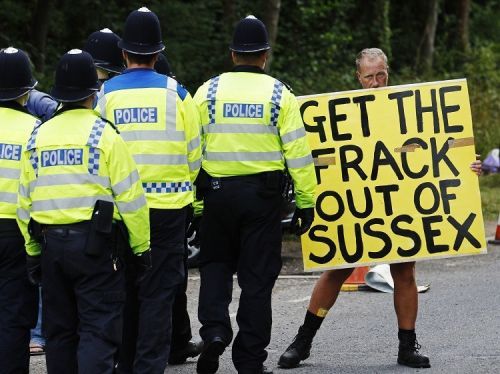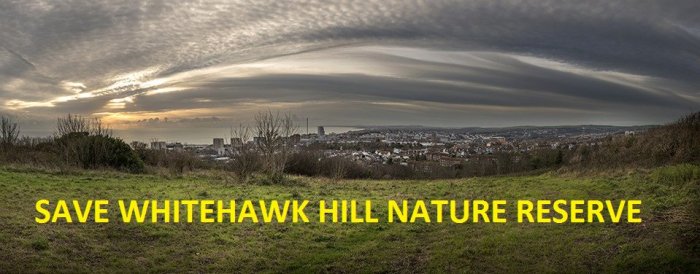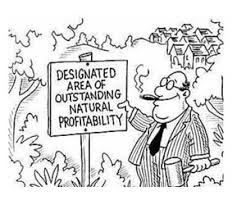Number 46
In this issue:
- Yellow is the new bloc
- The system must be destroyed!
- Controlling the narrative
- Climate of manipulation
- Against their world of artifice
- Acorninfo
January 19, 2019: week 10 of history-forging French uprising
For the tenth weekend running, hundreds of thousands of people took to the streets all across France in the Gilets Jaunes or Yellow Vests revolt against neoliberal capitalism – and this in the face of unprecedented state violence and oppression.
President’s Macron pathetic attempt to take back the initiative with his “Grand National Debate” has been exposed as a sham, with his regional roadshows protected by armies of riot police – deployed to keep at bay the people he is supposed to be listening to!
In Paris, for Act 10 of the uprising, the latest in a series of massive marches was estimated by observers to stretch for 4km and was met with the usual hostility and teargas from the “forces of order”.


Gilets Jaunes in Lille set up a burning barricade to keep the cops at bay.
Down south, protesters in Avignon forced open the gate to the police station and tried to set the town hall on fire.

A protester was seriously injured in Rennes.

In Toulouse, even the city authorities admitted that 10,000 people turned out and their protest was received with the usual politeness by the police.
One Gilet Jaune was the victim of a particularly nasty attack: “At least five or six cops descended on him, he was literally smashed to the ground. There were baton blows. He started to convulse”.
This is how Macron’s neoliberal democracy defends itself against dissent.
There were reports from Bourg-en-Bresse of protesters being injured by rubber bullets, grenades and the firing of teargas.
Some Gilets Jaunes in Clermont-Ferrand invaded the city’s shopping centre, chanting “Macron resign!” and blocking the escalators.
Everywhere there were thousands and thousands of people demanding an end to the neoliberal misery being imposed on France by Macron’s regime and the whole corrupt political system.
Caen, Rouen, Nîmes, Strasbourg, Bordeaux, Toulon, Dijon, Beziers, Perpignan, Montpellier, Lyons, Angers, Poitiers, Marseilles, Bergerac, Brest, Longeville-lès-Saint-Avold, the little town of Foix in rural Ariège…
And from everywhere the same images and reports came flooding in: big crowds, police provocation, teargas, grenades, batons, water cannon, blood and defiance.
Ten weeks on, this is still only the start!


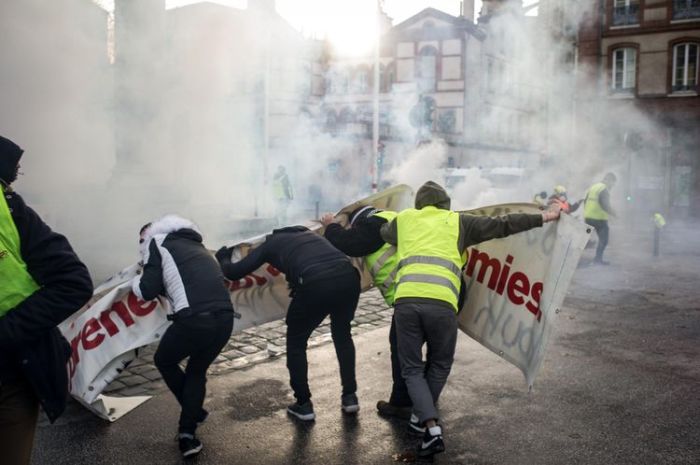



See also:
Yellow fever: long live the revolutionary mob!
Gilets Jaunes: unfiltered anti-capitalism
“Police everywhere, justice nowhere!” – Gilets Jaunes on the streets of Nîmes
The heartbeat of the yellow jacket revolt is rural
Christmas with the gilets jaunes
May our yellow sparks of revolt set the world ablaze in 2019!
France on the brink: either we topple the system or it will crush us
2. The system must be destroyed!

Let’s be clear about this: the system exists.
You can call it what you like – The Establishment, The Thing, The Matrix or the Industrial-Military-Prison-Propaganda-Complex – but it exists.
It has become trendy in recent years to pretend that this is not so, that what we are seeing is merely a collection of economic or interpersonal relationships.
But it is the system that promotes, protects and imposes all the layers of domination and exploitation that mark our everyday lives.
It is the system that tells us we have to spend our best life energy working for it, just for the right to eat and exist in the world it claims it owns.
It is the system that pays its hired thugs to beat us up, intimidate us, lock us up for years if we refuse to play by its rules.
It is the system that maims and murders human beings on an unimagineable scale across the world, all in the interests of its profit and power, and still always claims the moral high ground.
It is the system that lies through its teeth, with a slick smile on its face, and is always quick to accuse anyone who challenges its lies of being a liar.
It is the system that devours, poisons and destroys our air, our water, our land and our bodies.
It is the system that brings death and extinction while claiming to bring growth.
It is the system that is always looking at new ways to monitor us, to control us, to infiltrate our lives, to direct our thoughts, to crush the tiniest possibilities of our freedom and resistance.
It is also the system, of course, that insists that the system does not exist, that we should not confuse the many trees of its oppression and control with an overall wood that could be termed an entity.
It says that anyone who talks of the system is necessarily a simple-minded fool who imagines the world is all controlled in every detail by half a dozen James Bond villains sitting around a conference table in an underground bunker.
It says that anyone who talks of the system is a conspiracy theorist liable to start spouting all kinds of deranged, maybe anti-semitic, nonsense.
The system says this because it knows full well that the rest of us – the powerless nobodies it so despises – will never be able to effectively challenge the system if we don’t even know that it exists.
On this point, and this point alone, we agree with the system. Identifying the existence of the system is the necessary first step to clearing the way for a worthwhile future for humankind and our planetary home.
The second necessary step is to destroy the system in its entirety.

The system has always depended on being able to control the narrative of the societies it controls, ensuring that its own existence remains invisible and that all its lies are accepted as self-evident truths.
It knows that it is in big trouble if serious numbers of people start ripping the propaganda drip-feeds from their brains and sourcing their information from elsewhere, if people stop parroting the sermons of the system’s priests and start thinking for themselves.
It has been interesting to see the system in panic mode in France, being forced to work through every step of the emergency disinformation procedures as the Gilets Jaunes revolt gathers more and more momentum.
To start with, the Gilets Jaunes were just a passing nuisance. Then they were right-wing extremists, or left-wing extremists if the message was being aimed at a right-wing audience. After that, they were violent thugs and village idiots. Then it was all a flop and dying out. Then they were suddenly threatening armed revolution. They subsequently switched back to being fascists again, maybe of the elusive “red-brown” variety evoked by neoliberals everywhere in their desperate attempts to equate far left with far right and present themselves as the only safeguard against the horrors of so-called “populism”.
Again and again, the well-groomed and arrogant faces of the Parisian elite appeared to inform the French people that they were nothing but uneducated riff-raff who deserved to be shot and telling them to pack it all in. But nobody was watching TV on the roundabouts.
The media even wheeled out the tired old spectre of the Le Pen family once again, with inflated reports of how they were poised to come to power. It’s a great double-act for the capitalists, the old nice-nasty routine: support capitalism or you get fascism.
While there have been howls of media outrage over every flower-pot thrown towards the serried ranks of armour-plated riot cops, the huge levels of brutal violence inflicted by the police themselves have been sidelined or even ignored.
Individual cops have complained publicly that the instructions for this violence – by means of tear gas, rubber bullets, water cannon, grenades or just good old-fashioned beating and kicking – are political and have come straight from the state.
The system has given orders for the Gilets Jaunes to be left bloodied in the road, handless or eyeless in several cases. The system has given orders for its media to pretend this just isn’t happening.
And people have seen that. Millions of people have seen it and seen through it. The system has played its hand and it cannot keep playing it again and again with the results that it expects.
This is the scenario it fears most. The scenario in which the hologram illusion of democracy projected by its vast range of propaganda techniques flickers and disappears from the minds of the people.
Instead they see reality as it, as it has been for a long time: a criminal gang of professional liars, manipulators and thieves successfully holding millions of people in a state of thralldom, and being prepared to use unlimited violence to hold on to their power.

It is not just in France that the system is afraid of losing control, although the population there seem to be several steps ahead of others in their awareness of what is going on and their courage in actually trying to do something about it.
That is why for years the system has been infiltrating radical political movements – and often sabotaging them from within so they can never successfully mobilise against its domination.
That is why it runs outfits like the Institute for Statecraft and its Integrity Initiative to push its propaganda and try to head off even the risk of a reformist social-democrat like Jeremy Corbyn getting a piece of power.
That is why it is rolling out products like NewsGuard to filter internet intervention and try and make sure only the system’s version of reality, the system’s views, can reach the public.
That is why it is constantly removing pages and accounts from social media, policing the internet to try to ensure that small voices of dissent can no longer be heard, while claiming that this insidious censorship is all about countering “fake news”.
That is why journalists who help whistleblowers expose the system’s crimes and manipulations are not only targeted by the system’s police but mercilessly smeared by the system’s faithful media lackeys.
But can the system ever really regain full-spectrum narrative domination and get all that information toothpaste neatly back into the mind-control tube?
We suspect not.

Greta Thunberg: darling of the climate change reformists
Needless to say, we at The Acorn are fully behind environmental campaigns like Extinction Rebellion (see Issue 45) which warn that we face planetary disaster unless our society makes radical changes.
But we have to admit that we are often puzzled as to why there is quite so much emphasis on climate change as the primary evidence of something going badly wrong.
Why less talk of the plastic that is choking our oceans, the chemicals polluting our water sources, the nanoparticles absorbed by our bodies, the noxious fumes poisoning our air, the microwaves causing cancers in our brains?
Why so little mention that there is a name for all of this – industrial capitalism?
Why so few calls for the dismantling of this productivist profit-based insanity and the instigation of degrowth to restore a society which produces solely according to its real needs?
Surely it couldn’t be because the climate change movement is being insidiously manipulated by elements of industrial capitalism itself?
Surely it couldn’t be because the issue is being hijacked by powerful private interests as a way of getting rich on the new technologies that will supposedly solve the crisis?
Could it really be the case that genuine environmental activists, arrested and locked up for their courageous actions, are being used as human cannon fodder for a global marketing campaign?

Anyone tempted to dismiss these questions out of hand might like to take a look at the new work published online by radical ecologist researcher and writer Cory Morningstar.
This concerns the “non-profit industrial complex”, which she describes as “the most powerful army in the world”.
She writes that we are currently witnessing “the launch of a global campaign to usher in a required consensus for the Paris Agreement, the New Green Deal and all climate related policies and legislation written by the power elite – for the power elite”.
The policies this campaign is trying to push through include carbon capture storage (CCS), enhanced oil recovery (EOR), bio-energy with carbon capture and storage (BECCS), rapid total decarbonisation, payments for ecosystem services (referred to as “natural capital”), nuclear energy and fission, and “a host of other ‘solutions’ that are hostile to an already devastated planet”.
The overall aim is the opposite of the degrowth we so badly need and would involve the “rebooting” of the capitalist economy by creating new markets and new growth.

Morningstar warns: “What is being created is a mechanism to unlock approx. 90 trillion dollars for new investments and infrastructure”.
The first part of her in-depth report focuses on “the manufacturing of Greta Thunberg” and the We Don’t Have Time organisation.
Future sections promise to investigate the role of Al Gore’s Climate Reality Project, 350.org, Avaaz, the World Wildlife Fund, the Green New Deal and, yes, Extinction Rebellion.
We look forward to reading them.
In the meantime, it is important that all of us who want to head off environmental catastrophe make it quite clear that this is not going to happen so long as we remain trapped inside the capitalist system.

See also:
Degrowth and the death of capitalism
Envisioning a Post-Western World
End industrialism or humankind dies
5. Against their world of artifice

The artificiality and abstraction of life under contemporary capitalism is dragging us further and further way from a real sense of being alive – in our bodies, in our daily lives, in our environment.
That is the crucial message from anti-capitalist philosopher and writer Renaud Garcia in his latest book, Le Sens des limites: contre l’abstraction capitaliste (Paris: L’Échappée, 2018).
He describes our Western world as “a civilization with money as its universal mediation” in which capitalism “encloses” and privatises all aspects of life.
It cannot tolerate the idea of anyone living outside of its enclosure, hence its need to stamp out the practice of “subsistence” farming, where communities have the cheek to simply produce enough food for their own requirements, rather than for the requirements of the capitalist profit-machine.
It forces people into its system by giving them no choice, he explains: “Declaring war on subsistence means dissolving the autonomous ways of life of thousands of people and thereby enslaving them to commercial needs which they can only fulfil by going out to earn a wage”.
The idea of defending a natural world, which includes human communities’ relationships with the environment, has been neglected by Western anti-capitalism, he says, particularly under the influence of mainstream Marxism.
Uprooted from our previous rural existences, we today often find ourselves living in a sterile and life-denying suburban sprawl, a space created “for the demands of capital”, where people are trapped in a dependence on their cars and thus on the oil industry.

Garcia draws much on William Morris and echoes his critique of the artificiality of industrial capitalism: “In this world of artifice, going beyond the surface to a deeper level, that of the sheer essence of things, is no longer conceivable”.
Garcia dedicates another section of the book to examining, and condemning, transhumanism, which he terms “the official ideology of technological capitalism”.
This ideology “reduces the human brain to a simple processer of information, a mere calculating machine” and is built on the “basic negation of the reality of living organisms”.
Behind it lurks a “brutal dualism” which regards mind and body as completely separate, and thus imagines the possibility of a “posthuman” self with no fleshly existence.
Worryingly, this ultra-capitalist creed is also embraced by some who term themselves left-wing and have swallowed the lie that technological and social progress amount to the same thing.

You can read the full version of this book review by Paul Cudenec on his blog.
“The Wet’suwet’en and Unist’ot’en remain steadfast in the determination that we will be successful in halting the toxic Coastal GasLink pipeline”. This was the defiant message issued on January 17 after the Canadian branch of the industrial-capitalist-military complex used shocking force against the indigenous peoples to try and clear the way for its polluting infrastructures, prompting an international wave of solidarity actions.

* * *
Hundreds of people marched in Bern, Switzerland, on Saturday January 19 against the World Economic Forum being held at Davos, and against capitalism in general. They declared: “The infinite greed for profit and power that is seen at the Forum in Davos has no limits. Let the ruling class feel our anger”.

* * *
Protests are to be held in Berlin on February 16 against the European Police Congress being hosted in the city. Says the call-out: “Let us use the police congress as an opportunity to take to the streets together against the police, the security authorities and their laws. Against state violence and repression. Against a world in which it is okay to let thousands of people drown on the borders of Europe, a world in which people are persecuted, imprisoned and killed because of their aspirations for liberation, a world that wants to destroy all forms of a life based on solidarity and collectivity”.

* * *
A new book on squatting has been published by Squatting everywhere kollective (SqEK) and is available to read online. ‘Fighting for spaces, Fighting for our lives: Squatting Movements today‘ provides glimpses into a diverse and multi-faceted movement, with accounts from local struggles, experiences of repression and stories of collective forms of life which have grown out of squatted spaces in various cities and countries throughout the world, including accounts from Rio de Janeiro, Istanbul, Seattle and Australia.

* * *
“Stop 5G on Earth and in Space!” is the message from a new international appeal. It calls for a halt to the deployment of the 5G (fifth generation) wireless network, including 5G from space satellites, explaining: “5G will massively increase exposure to radio frequency (RF) radiation on top of the 2G, 3G and 4G networks for telecommunications already in place. RF radiation has been proven harmful for humans and the environment. The deployment of 5G constitutes an experiment on humanity and the environment that is defined as a crime under international law”.

* * *
In India’s densely populated megacities, residents are rallying against the widespread destruction of trees to make way for capitalist development, reports Vaishnavi Chandrashekhar. She highlights grassroots resistance in Mumbai, Bangalore and Delhi which are keeping alive the Indian tradition of tree-hugging and passionate defence of nature.

* * *
Brazil’s new far-right President Jair Bolsonaro has already set out his vile agenda, reducing the minimum wage and unveiling plans to step up privatization, toughen prison sentencing guidelines, and hand control over Indigenous land to the Agriculture Ministry. The pro-US, pro-Israel Bolsonaro could well be the first in a new line of authoritarian neoliberals ready to impose industrial capitalism on the world without worrying too much about the facade of “democracy”.

* * *
An eye-opening account of life for workers in China has been provided by Dissent Magazine. Uprooted from the land, peasant-workers have to take jobs in the electronic, garment, construction, or service industries whose low wages force them to work punishing hours of overtime. They live in crowded dormitories, under CCTV surveillance and the constant threat of eviction if they protest. “This is the true ‘miracle’ of Chinese industrialization: a highly vulnerable, precarious, and exploited working class”.

* * *
A very interesting article has been published by our US comrades at It’s Going Down, addressing the thorny issue of alleged ideological similarities between deep-green anarchism and fascists, who often used nature-based rhetoric in their propaganda. The author finds that even the way the two traditions talk about nature reveals the apparent resemblance to be superficial: “The philosophies of the fascists came to largely revolve around concepts of domestication, husbandry, design, and surgical intervention; those of the primitivists revolve around wildness, biodiversity, voluntary association, and self-determination”. ‘Fascism, Ecology, and the Tangled Roots of Anti-Modernism‘ sits nicely alongside our own 2018 article, ‘Organic radicalism: bringing down the fascist machine‘ as a step towards clearing up this area of painful ideological misunderstanding.

* * *
Acorn quote: “What is the point of economic progress, a so-called higher standard of living, when the earth, the only earth we have, is being contaminated by substances which may cause malformations in our children or grandchildren?”
E.F. Schumacher, Small Is Beautiful

(For many more like this, see the Winter Oak quotes for the day blog)
—–
If you like this bulletin please tell others about it. Subscribe by clicking the “follow” button.
—–
Back Issues
Follow Winter Oak on Twitter at @WinterOakPress
